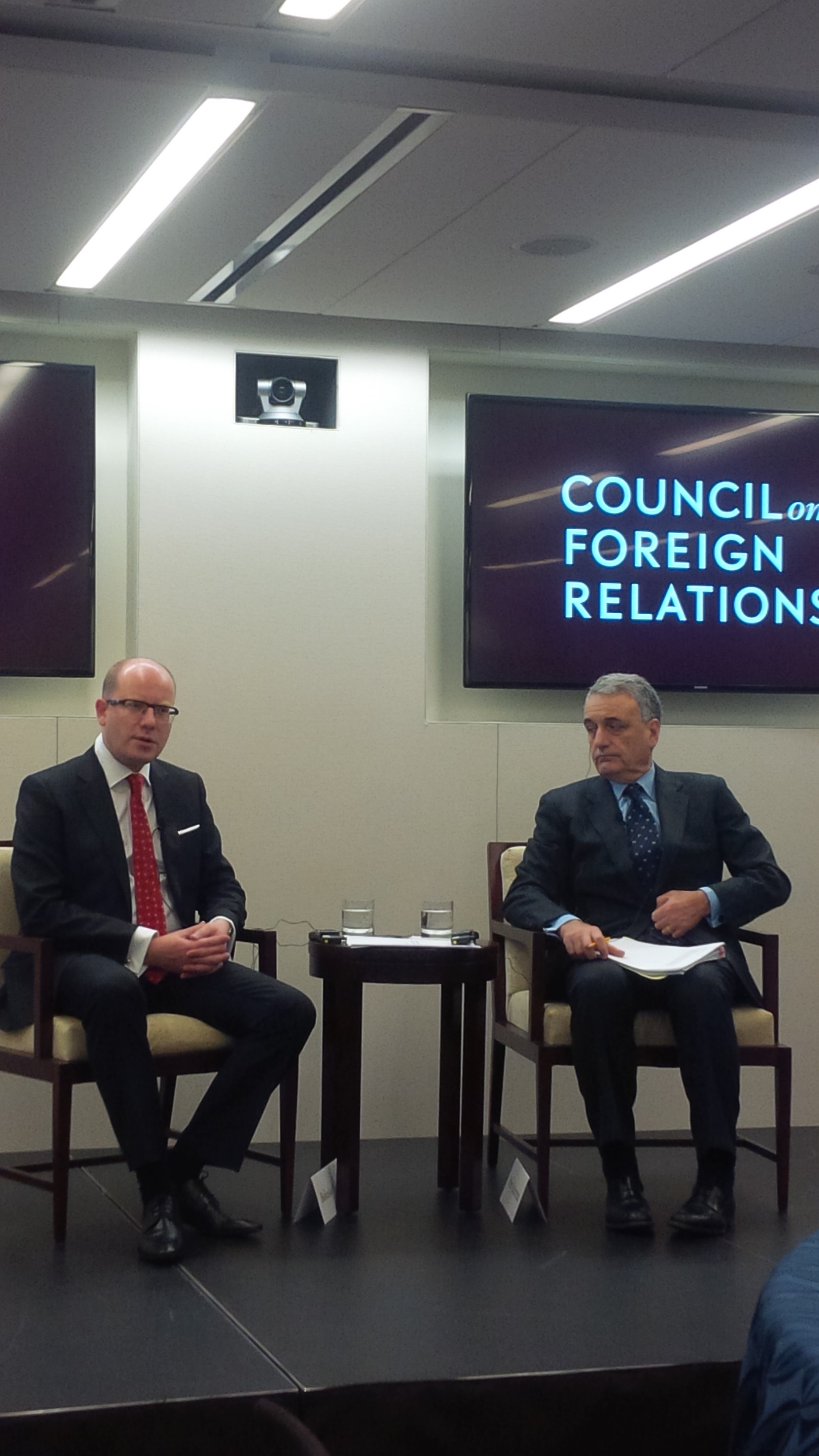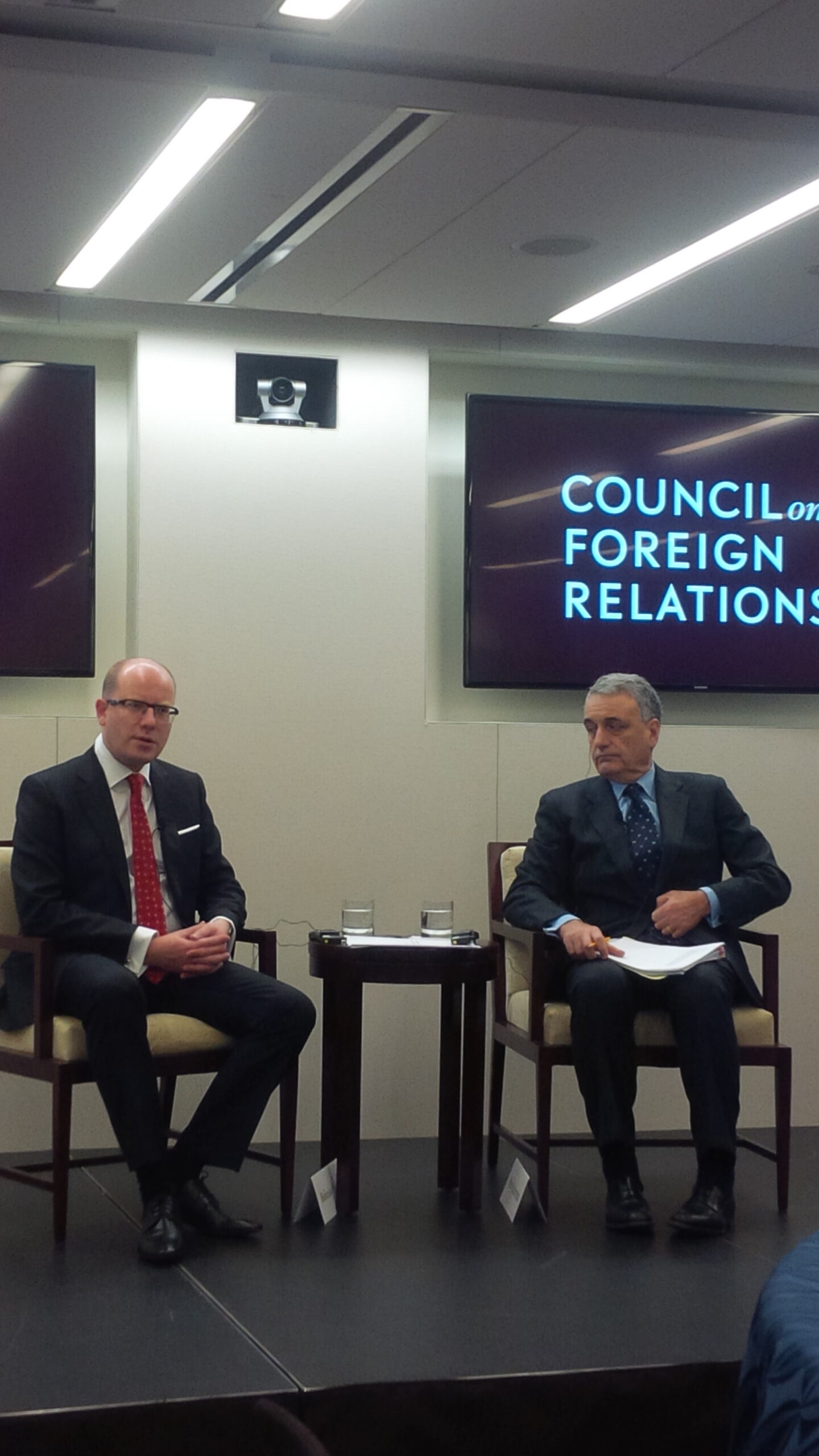 On November 19, 2014, the Council on Foreign Relations hosted a Washington Meetings Program titled Twenty-Fifth Anniversary of Democracy in the Czech Republic featuring the Prime Minister of the Czech Republic, Bohuslav Sobotka. UMD Co-Founder and President Metodija A. Koloski and UMD International Policy and Diplomacy Fellow Salvatore Schiano were invited to attend.
On November 19, 2014, the Council on Foreign Relations hosted a Washington Meetings Program titled Twenty-Fifth Anniversary of Democracy in the Czech Republic featuring the Prime Minister of the Czech Republic, Bohuslav Sobotka. UMD Co-Founder and President Metodija A. Koloski and UMD International Policy and Diplomacy Fellow Salvatore Schiano were invited to attend.
Mr. Sobotka’s presentation featured topics related to the Czech Republic’s progress over the years, its role in NATO and EU, a vision for the next twenty-five years, Russia-Ukraine, and Syria and ISIL. A video of the entire discussion can be found on CFR’s website by clicking HERE.
During the question-and-answer session, UMD President Koloski was able to pose the following question to Prime Minister Sobotka: “2015 has two anniversaries coming up on the Balkans; the 20th anniversary of the Dayton Peace Accords and the 20th anniversary of the signing of United Nations Interim Accord between Greece and Macedonia. What can the Czech Republic and EU do to help resolve some of the issues in this region?”
Prime Minister Sobotka answered: “The Balkans situation is much more stabilized than it was 15 years ago, a great number of countries in the Balkans became integrated into the EU and some have become members of the EU and NATO.”
He continued, “The countries which have so far not been integrated in the European Union are on their path and are acquiring, step by step their candidate status. There are certain countries, which have a more complex integration than others; perhaps we can mention Macedonia here. It is a country, which in my opinion is ready from a great part, to be integrated into the North Atlantic structures and European Union; however, there is the conflict they have with Greece as they are a NATO member and EU member state. I think this is an important task for the European commission to conduct a dialogue between Macedonia and Greece and I think Europe can play a vital role in resolving this conflict and helping Macedonia to integrate. Also, I appreciate Macedonia managed to stabilize their relationship with the Albanian minority, and I think that the model of Macedonia and the covenants of the Macedonians and people of Macedonia and Albania could serve as a very good example of several ethnicities living together.”
In March 2013, the Czech Republic became the 135th country and 16th EU Member-State to recognize Macedonia’s rightful and constitutional name. In October 2014, Prime Minister Sobotka hosted Macedonian Prime Minister Nikola Gruevski for a three-day visit to the Czech Republic.

